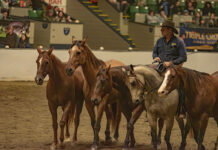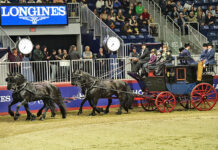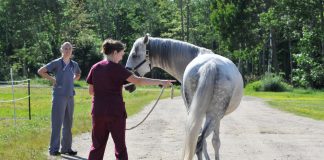Every year, the third week of March is recognized as National Poison Prevention Week. Take some
time to check your home, barn and pastures to protect your horses and pets from accidental
poisoning. Here are some resources to help.

Are There Poisonous Plants in Your Horse’s Pasture?
Find out about some poisonous plants that could be lurking near your horse’s home.
Poisonous Posies
Learn how to identify poisonous plants in your horse’s pasture with resources from these
universities.
ASPCA’s Poison Control Hotline Could Save Your Horse’s Life
The emergency line is open 24 hours to assist horse and pet owners.
Are Your Pastures Safe?
New guide helps horse owners determine if toxic plants are growing in their pastures.
Animal Poison Control Center
Learn more about poison prevention for animals from the ASPCA.
Poison Prevention
Information about the events associated with National Poison Prevention Week.






I think everyone should check everything in their horses field just to make sure that there is nothing in there that will hurt them. If you see a plant or tree that you are unsure about look it up and call your vet and ask them if it is harmful to your horse(s).
Thanks for the info.
Good to know.
Thank goodness, the good Lord gave most horse the good sense not to eat most plants that are not good for them.
agree with PKL some horses are blessed with good “horse sense” on what to eat and what not eat. I’m lucky have some good ones that know better.
Good reminder.
Thanks for the remeinder, many plants are not good for the horses, and usually they know more than we do. But its good to be awhere of the plants ahead of time, so they can be removed.
good information
great info!
Spring is a good time to check over the pastures for dangerous weeds and other items winter has left behind…..perhaps that lost halter.
Good tips.
I try to kill any poison weeds in the pastures, but most horses know which are bad. The young ones, like to put everything in their mouth.
Interesting article 🙂
informative
cool
Scary.
God made horses smart, so they know what to eat or not, its usually the bored or young horse that get into trouble.
hmmm